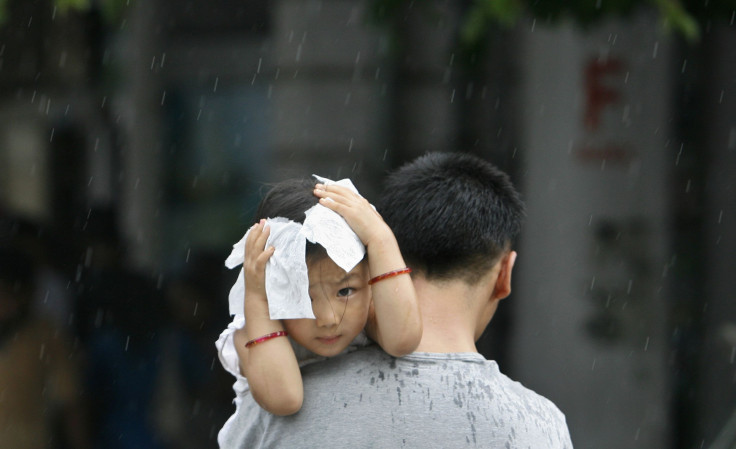Parenthood, Repeated And Depression-Filled: The Turbulent Life Of Step-Parents

A step-parent’s trajectory can be a bumpy one. What begins as watching over a single baby in your late 20s or early 30s eventually turns into acting as a peer, parent, and semi-detached relative to young adults of varying ages, temperaments, and bloodlines. It’s a turbulence that all too often leads to psychological breakdown, new research is finding.
The nuclear family is disappearing, leaving in its wake a mosaic of remarriages and what social work researchers call a “yours, mine, and ours” dynamic. Parents must juggle their own children, their new spouse’s children, and the children the two of them have together. Only in recent years have researchers tried to untangle the complex web of relationships found among these contemporary families, and now the picture is starting to become clear.
One of the standout findings is that parents and non-parents express depression differently. “They may be more likely to shout and be argumentative,” said Kevin Shafer, a professor of social work at Brigham Young University, to Medical Daily. “These are behaviors that can affect children and their outcomes — such as their health, how they do in school, and their emotional well-being.”
And step-parents may have it even harder. Shafer is the co-author of a recent study into the world of juggling multiple parental roles. He and his co-author, Garrett Pace, a research specialist in Princeton’s Center for Research on Child Wellbeing, analyzed data from the National Longitudinal Survey of Youth, 1979, an ongoing set of surveys designed to track human behavior over the long term. The study included more than 6,000 parents occupying diverse roles within their families. Pace and Shafer looked at gender differences and the impact step-parent roles were having on people’s psychological well-being. Ultimately, they found parents occupying all three roles were 57 percent more likely to be depressed than parents occupying just one.
Parents may already face a stacked deck, says Pace. “Even though parenting can be very rewarding, generally, parents tend to report poorer mental health than non-parents.” But, he adds, parents tend to have history on their side. Millions of years of human history suggest a reassurance that they can get through it. Step-parenting, on the other hand, is a new phenomenon, and one many parents feel like they must figure out alone. “They want to be good parents,” but “the family complexity and lack of norms to navigate their family relationships might contribute to poorer mental health.”
Mental illness may also stem from the sheer volume of work. Fathers, for example, may find it emotionally taxing to move between being the devoted dad and the pragmatic older adult who gets called by his first name. Adding to the uncertainty, the lines themselves may be unclear, particularly if kids can’t communicate their feelings. If that uncertainty turns to inadequacy, Pace and Shafer find, the result may be depression.
Both authors agree all hope isn’t lost. Navigating the waters of “yours, mine, and ours” begins with communication and stability, Pace says. “Children want to be heard. When reasonable and feasible, they should have a say about what they’re comfortable with.” That begins with parents taking an active role in asking the kids directly. After all, any uncertainty parents feel begins with how the kids feel about the new family. Depressions means, at some point, a conversation got glossed over.
Shafer adds into the mix the possibility of family therapy. Past that, just talking things out stands as the root of all change. “You may feel very strongly about having a new child as a couple, which is perfectly understandable,” he said, “but I think it means that parents need to sit down with their children and have a very direct, open conversation about what having a new child means for everyone in the family and allowing the children to express their fears, anxieties, concerns, and excitement at the prospect of a new child in the home.”
Source: Shafer K, Pace G. Gender Differences in Depression across Parental Roles. Social Work. 2015.



























